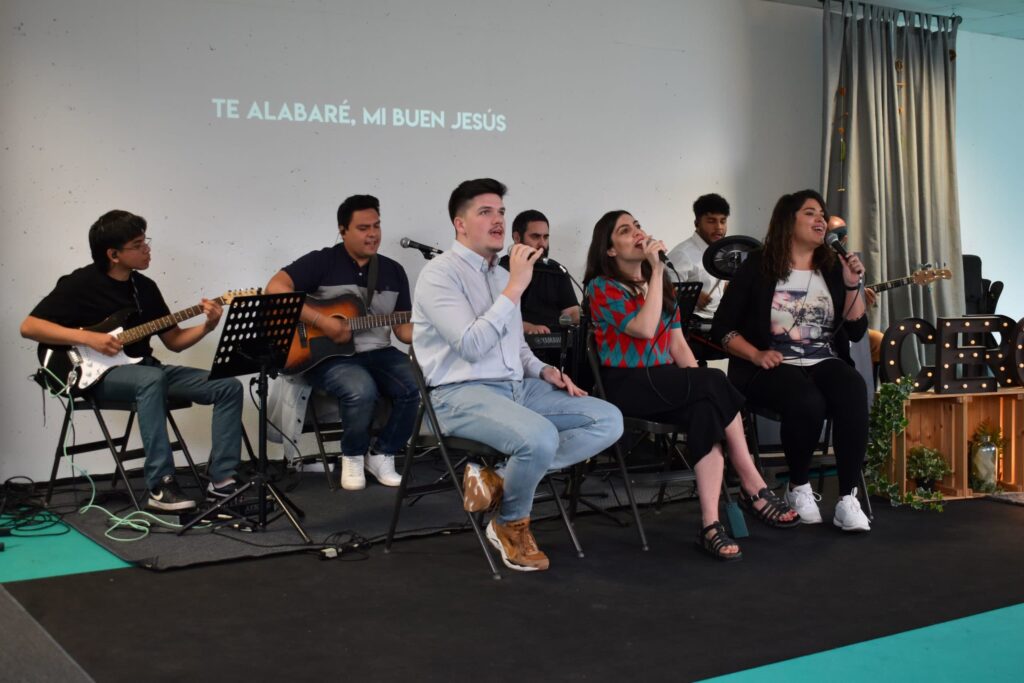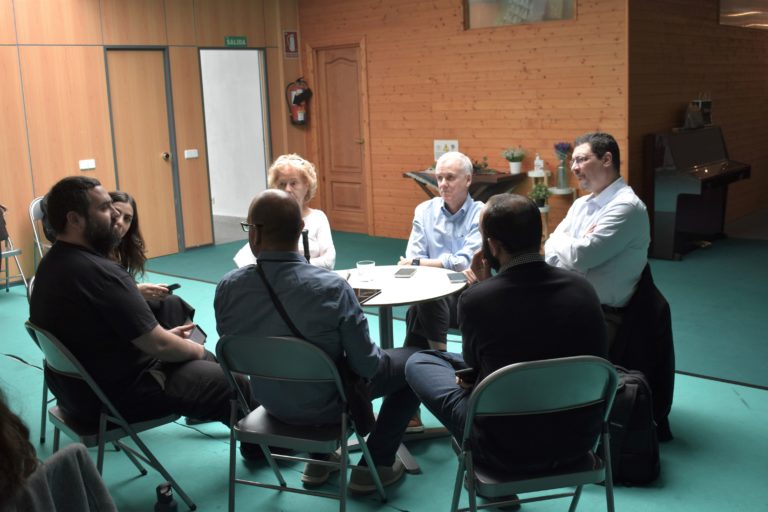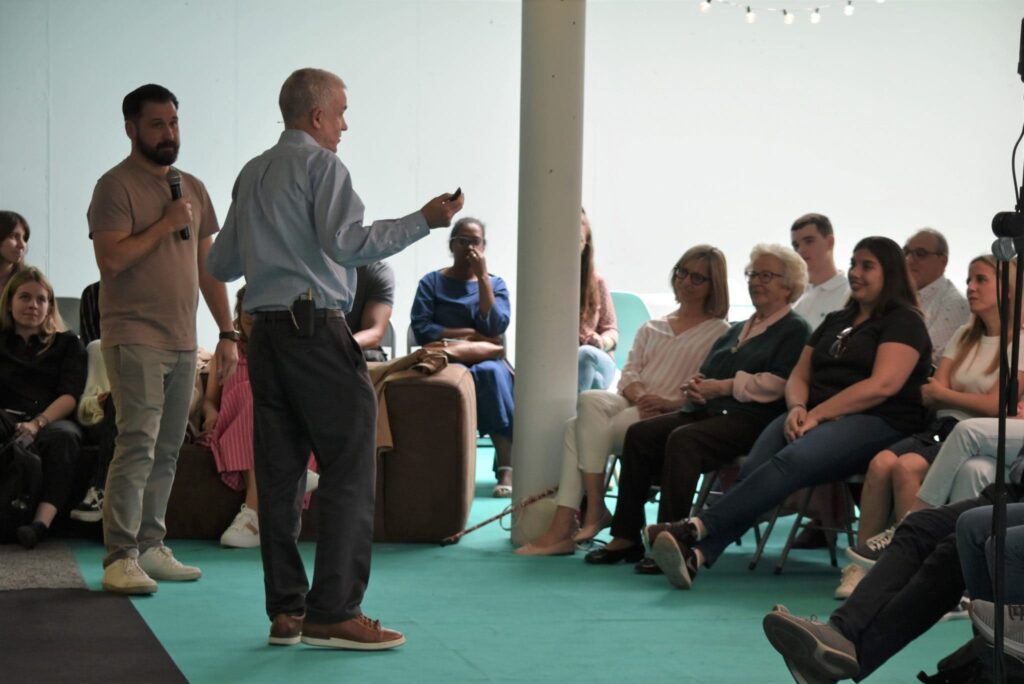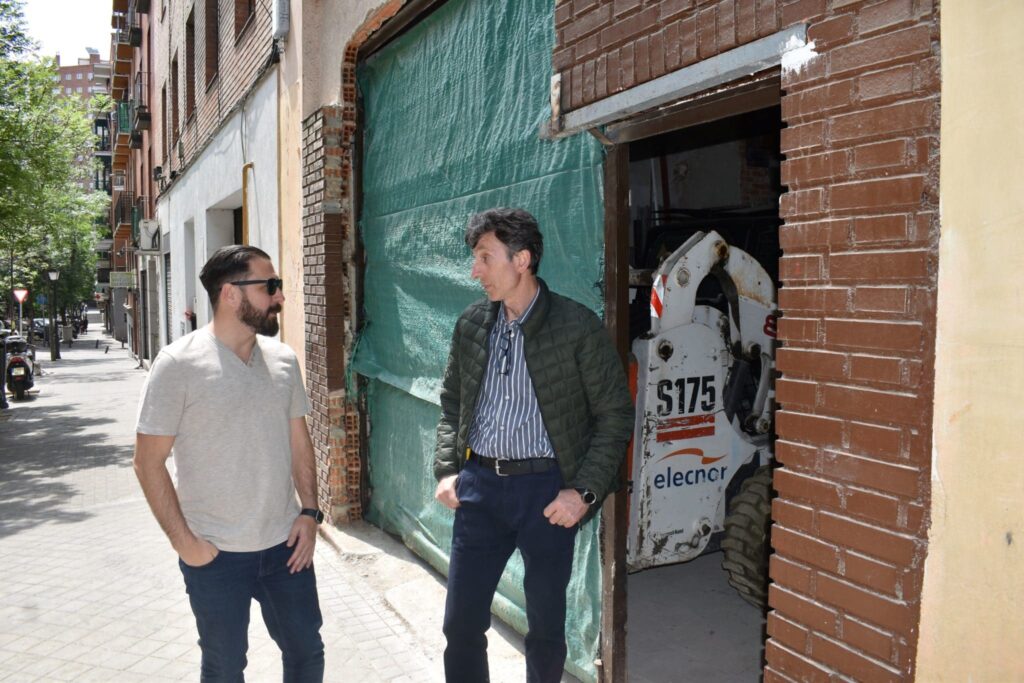Out-of-the-Box Church Keeps Connecting With a Secular, Urban Public

Iglesia CERO worship team leads in a song during the May 20 service in Madrid, Spain. [Photo: Marcos Paseggi, Adventist Review]
In Madrid, Spain, Iglesia CERO is making inroads in a previously unreached population.
May 31, 2023 | Madrid, Spain | Marcos Paseggi, Adventist Review
For years now, Iglesia CERO has been a Seventh-day Adventist church plant not like many others. The church, whose name literally means, “Zero Church,” is an initiative of the Spanish Union Conference of the Adventist Church in Madrid, Spain. The congregation mostly caters to a secular, urban public — people who might not normally be found in an average Adventist church plant.
According to its stated mission, Iglesia CERO seeks to devote its members’ “hearts and souls to proclaim[ing] the living God.” To accomplish that, the church looks for ways to connect with a mostly agnostic, post-modern, and even atheist public, inviting people to consider and discuss the big questions of existence and faith in a non-threatening environment.
The church plant meets in a basement hall behind the Spanish Union Conference offices, but members hope to move to their own meeting hall in downtown Madrid once its remodelling is complete, which will probably be before the end of 2023.

A class discusses the Sabbath School Bible study for the week at Iglesia CERO, with visiting leaders Kleber Goncalves (right) and Gary Krause (third from right). [Photo: Marcos Paseggi, Adventist Review]
Local church pastor Jonathan Contero explains the mission and goals of the church community he leads. “At this congregation, we welcome some people who have no Christian connection or background, for whom anything related to a life of faith is not even a possibility. They arrive for various reasons, often in search of a connection. And we embrace them all, inviting them to start asking questions.”
Against this background, the expectations for this initiative differ greatly from a regular evangelistic series, as the congregation helps people to move from “zero” to a meaningful life of faith. “Take that guy,” Contero says as he points out a middle-aged man who chats animatedly with others before the May 20 worship service. “He was an atheist when he arrived years ago. He had no background [knowledge] about God, the Bible, or anything Christian,” Contero explains. “Now, after several years [of] attending Iglesia CERO, he has reached a point where he has become a Christian believer.”

A tasty fellowship meal is usually part of the worship experience at Iglesia CERO. [Photo: Marcos Paseggi, Adventist Review]
For the most part a “regular” Adventist congregation, Iglesia CERO has nevertheless developed the ability to connect with people who would never dream of visiting a Christian church. Most arrive because they have developed a connection or friendship to one of the congregation’s members.
“Look at that young man,” Contero says as he points out another visitor. “He has become friends with a young lady who used to be a Seventh-day Adventist but [left the church]. Now, they are both attending, even though he has no idea about the Bible or Christian teachings.”

Members and visitors listen to Gary Krause’s message at Iglesia CERO on May 20. [Photo: Marcos Paseggi, Adventist Review]
What If?
During the May 20 worship service, Krause invites his audience to reflect on the meaning of human existence and the future and to consider what the alternative is. “There are many ways people seek to delay the moment we will stop breathing,” Krause tells them. “But no matter what we do, or how much we deny or strive to postpone death, we know it’s just a matter of time.”
Against such a rather bleak panorama, Krause invites his audience to think that there might be something more out there. “What if there’s more beyond this human skin? What if there is something beyond our material existence?” he asks. “When we look at [the Bible], could this be telling us truth about human existence rather than just being a fairy tale? Could what the Bible says about death be true?”

Local church pastor Jonathan Contero (left) discusses with construction crew foreman Alex Randaso some particulars of the new Iglesia CERO building initiative by the main entrance of the project in downtown Madrid, Spain. [Photo: Marcos Paseggi, Adventist Review]